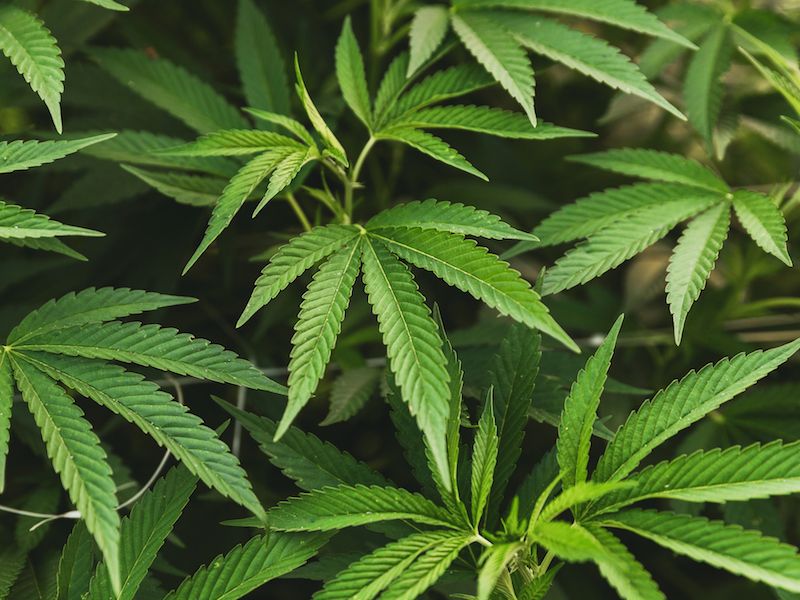
Public opinion surrounding marijuana and cannabinoids have changed incredibly over the past few decades. Many states currently permit the use of marijuana, THC, or cannabinoid compounds for medicinal applications. Ten or fifteen years ago it would have been unthinkable for marijuana to be legal for recreational usage but some states have even passed this law.
A group of compounds derived from the cannabis plant (the marijuana plant, essentially) are called cannabinoids. Despite their recent decriminalization in some states, we’re still discovering new things about cannabinoids. Although we now are beginning to accept the numerous medical benefits of these compounds, it has been recognized for some time that tinnitus could be activated by cannabinoids.
Cannabinoids Come in Numerous Forms
These days, cannabinoids can be used in lots of forms. It’s not just weed (or Mary Jane, or grass… ok, let’s just all agree right now that marijuana has many nicknames and move on). Oils, mists, pills and other variations of cannabinoids are currently available.
Every state has different laws regarding what types of cannabinoids you can buy, and under federal law, many types are still illegal if the amount of THC is over 0.3%. That’s the reason why some people are rather careful about cannabinoids.
The concern is that we don’t yet grasp much about some of the long term side effects or risks of cannabinoid use. Some current research into how cannabinoids influence your hearing is a good example.
Cannabinoids And Your Hearing, Some New Research
A wide variety of illnesses and medical conditions are thought to be improved by cannabinoids, whatever you like to call it. Based on evidence that is anecdotally available, conditions such as vertigo, nausea, seizures, and many more appear to be improved by cannabinoids. So researchers resolved to see if cannabinoids would be helpful with tinnitus, too.
Tinnitus might actually be triggered by cannabinoid use, as it turns out. Ringing in the ears was reported by more than 29% of participants after using cannabinoids. And that’s in people who had never had tinnitus before. Furthermore, marijuana users were 20-times more likely to report having tinnitus symptoms after 24 hours.
Additional research indicated that marijuana use could worsen ear-ringing symptoms in people who already deal with tinnitus. So, it seems fairly certain that cannabinoids and tinnitus aren’t really compatible.
How Cannabinoids Make Tinnitus Worse
Your tinnitus can be aggravated by cannabinoids in a couple of concrete ways. First, the incidents of tinnitus symptoms can get more consistent, you might experience the buzzing or ringing in your ears more persistently. Cannabinoids can also make those tinnitus episodes more intense. The discomfort from the ringing might become louder or harder to just ignore.
The study also appears to indicate that cannabinoids are capable of causing the development of the initial symptoms of tinnitus. Or, explained another way: if you didn’t have tinnitus before, you might develop tinnitus after you use cannabinoids.
Uncertain Causes of Tinnitus
Just because this link has been discovered doesn’t necessarily mean the root causes are very well known. It’s apparent that cannabinoids can have an effect on the middle ear and symptoms of tinnitus. But what’s causing that impact is far less obvious.
But we do know that marijuana is one of the few commonly used mood-altering substances that brings about tinnitus (alcohol, as an example, hasn’t been shown to have a strong connection to tinnitus).
Of course, we will keep doing research. People will be enabled to make a practical choice concerning which of the many kinds of cannabinoid to go with as we gain better insight into their connection to tinnitus.
Beware The Miracle Cure
Lately there has been lots of hype about cannabinoids by marketers. That’s partly because mindsets are transforming about cannabinoids (and, it could also indicate that people are attempting to get away from opioid use). But cannabinoids can and at times do produce undesirable effects, according to this new research, and this is particularly true when it comes to hearing.
The marketing for cannabinoids has been especially assertive and you can’t entirely avoid all of the fanatics.
But this new research certainly suggests a solid link between cannabinoids and tinnitus. So if you have tinnitus, or if you’re worried about tinnitus it may be worth keeping away from cannabinoids if possible, no matter how many adverts for CBD oil you might encounter. The connection between tinnitus and cannabinoids symptoms has been quite firmly established by the research, so it’s worth being careful.
